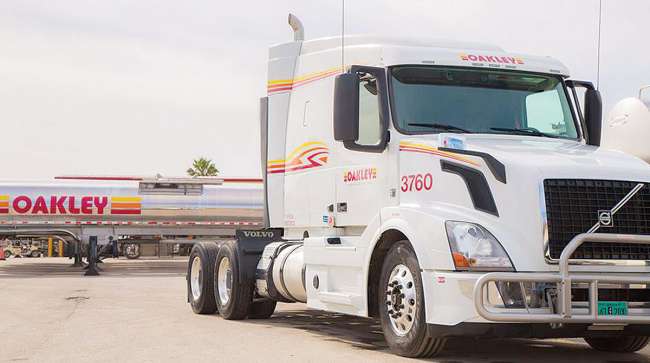Senior Reporter
February Class 8 Orders Slow; Backlog Falls

Class 8 orders for February trickled in to reach 16,900, down 58% compared with a year earlier, reflecting a backlog already swollen by record demand in 2018, reports ACT Research Co.
A year ago, Class 8 orders hit 40,600 in what would become a record year.
February’s total improved on the 15,800 orders placed in January.
President Kenny Vieth discussed February's 5% and ACT's view of the the state of the supply-demand balance in an interview with The Trucker. #commercialvehicles #Class8 #forecast https://t.co/on3vYj9ymz pic.twitter.com/aWDXld1VBE
— ACT Research (@actresearch) March 6, 2019
“The number was appropriate,” ACT Vice President Steve Tam told Transport Topics. One of ACT’s analytical tools has been signaling below-replacement demand for three or four months, he said. “This fits very well into that piece.”
ACT estimates North American replacement demand at 240,000 units.
Also, ACT reported that February marked the third consecutive month of orders meaningfully below the current rate of build. (Preliminary numbers will be revised when truck makers release their final data.)
“We have started pulling units out of the backlog because we are building faster than orders are coming in,” Tam said, calling it a natural progression of the demand cycle and a necessary thing. “Everybody would love for that demand curve to continue going up and to the right, but it’s just not realistic.”
ACT forecasts North American production will be 335,000 units in 2019, a 3.3% increase over 324,290 a year earlier.
The FTR Perspective on Class 8 Equipment https://t.co/8JkVIYHIGh #class8 #truck #trucking — FTR (@FTRintel) February 14, 2019
Research firm FTR pegged February orders at 16,700.
But production was almost double that at 30,000 units, FTR Vice President Don Ake said .
So the backlog dropped almost 14,000 units in one month to 275,000 compared with 157,000 a year ago, Ake said. “So that is still huge” and close to a record drop in backlog for a single month.
With orders down and production building, the backlog will continue to come down to a more normal number, “but it could still take over a year for things to get into balance,” he said.
Ake added that the truck makers “with slots open did well,” which means there are fleets out there that still need trucks.
“It tells me the market is still strong,” he said.
One fleet executive said business remained so strong that discussion was already underway within the carrier about ordering 100 trucks now for delivery in the first quarter of 2020.
“Customers are sharing their forecasts saying, ‘Strong, strong, strong. You get the trucks, and we will give you the business.’ We are not backing off at all,” said Pete Nativo, vice president of fleet solutions at Oakley Transport.
The Lake Wales, Fla.-based bulk carrier specializes in liquid and food-grade transportation.
“We have 200 new trucks coming in this year — 50 in first quarter, 50 in second quarter — then 20 trucks a month until we get to 200,” he said.
Oakley is getting the trucks from Volvo Trucks North America after placing its orders last fall.
Nativo said he has inspected the first 20 trucks at VTNA’s truck plant, and the only deviation in the specifications he asked for was with the tires.
Nativo wanted Bridgestone, but VTNA said they can’t guarantee every truck will come with Bridgestone; some trucks would have to come with Michelin tires, instead.
“I don’t think it’s that big a deal. They are going to give me a Tier 1 tire. That’s the only spec they are wavering on,” Nativo said. “But they are right on schedule.”
Executives from truckload carrier USA Truck agreed that truck makers were meeting their delivery schedules.
The Van Buren, Ark.-based carrier ranks No. 69 on the Transport Topics Top 100 list of the largest for-hire carriers in North America.
USA Truck had underinvested in new trucks for a couple of years, Chief Financial Officer Jason Bates said during a recent call about fourth-quarter earnings.
“So last year was kind of a big investment year, but now we’ve got to get on a regular cadence,” he said. “And so we’re going to be bringing in 300 to 350 more trucks this year starting here in the first quarter.”
USA Truck’s operating model is to receive those trucks preferably in the first half and certainly in the first three quarters of the year, CEO James Reed said. “It is not our operating norm going forward to be receiving masses of trucks in the fourth quarter.”
Meanwhile, Ake said, “Maybe this cycle runs a little bit further than we think. Right now, signs are more positive than they were.”
Cancellations were about 4,700 units — the lowest in seven months, he added.
ACT said cancellations amounted to 1.7% of the backlog, or “business as usual.”




